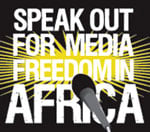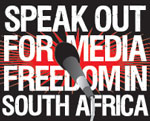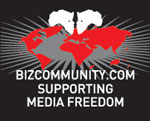"Media is a very powerful tool, and there should be a critical reason why everyone other than the industry itself wants to regulate it. In particular they want to stop it from serving the interests of a certain group," said Anthony Ngaiza, Tanzanian media consultant and former executive secretary of the Media Council of Tanzania.
Ngaiza was speaking yesterday, Wednesday, 9 March 2011, at the Regulations and Rights media conference at Wits University in Johannesburg.
Media linked to power
"Media is linked to power and has the power to shape, create and destroy, and helps to change outlooks and attitudes, including promoting genocide and civil strife and distorting the truth.
From Cape Town to Cairo via Harare, Luanda, Kinshasa, Accra, Lagos and Banjul, most of the independent media houses operate under the eagle's eye of 'vulture' ruling parties which label any criticism of their policies an act of counter-revolution. In countries where there is some sort of freedom of expression, governments have been calling for these media houses to put 'some order into their houses', or face the risk of being regulated and reined in by the law. So, there has been a rush to choose what kind of self-regulation model can be applied to 'restructure' the industry.
Prof Franz Kruger, head of the radio academy at Wits University, said: "Accountability is a critical principle of journalism, and we must be prepared to be held accountable if we are to hold others accountable.
Applying accountability
"But the question is, what kind of accountability should we apply without compromising our freedoms and the freedom of expression?"
Analysing the US case study, Prof Kruger said, while Americans reject any form of media council and maintain that nobody outside the editorial management should have any kind of say in media matters, it does not mean that they do not believe in accountability.
"It is just that they don't want it to be done in a 'certain' way."
Media councils, he said, are the patterns in various countries that see themselves as democratic. "And any state funding of those councils could present a danger to self-regulation." Furthermore, he insisted that any kind of self-regulation model must be run and funded by the media, and at the same time try hard to defend media freedom while raising the standards of journalism.
Lack of maturity
Ngaiza, who previously served as director of studies at Tanzania School of Journalism, said the lack of maturity in professional ranks is one of the main reasons why 90% of self-regulatory bodies have failed in many parts of Africa.
"If the media were to lose public trust, it will lose its legitimacy. Media must remain credible, socially responsible and ethical in whatever they do," he said, adding that self-regulation in Tanzania has worked well.
"Sometimes, the lack of professional maturity does create a fertile ground for governments to clamp down on the media."
In conclusion, he said: "The right of information is a human right. Freedom of expression will never be given to you on a silver plate. You have to fight for it."
See tweets from and about the conference through the Bizcommunity
#zamediafreedom Twitterfall or via Twitter Search (
#AfricaMedia). For the "Wits Declaration on Media Freedom and Responsibilities" and presentations, references, audio, photographs and other news articles from the conference, go to
Wits Journalism.
Last updated at 11.04 on 16 March 2011.
















